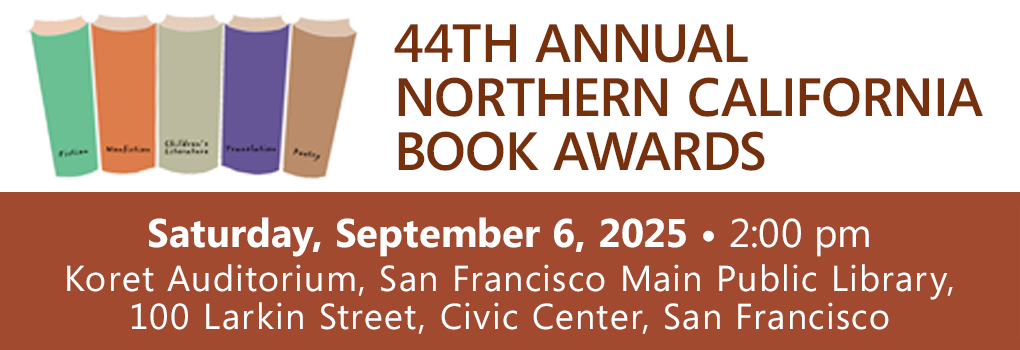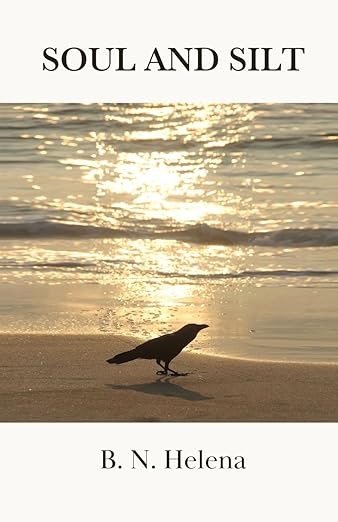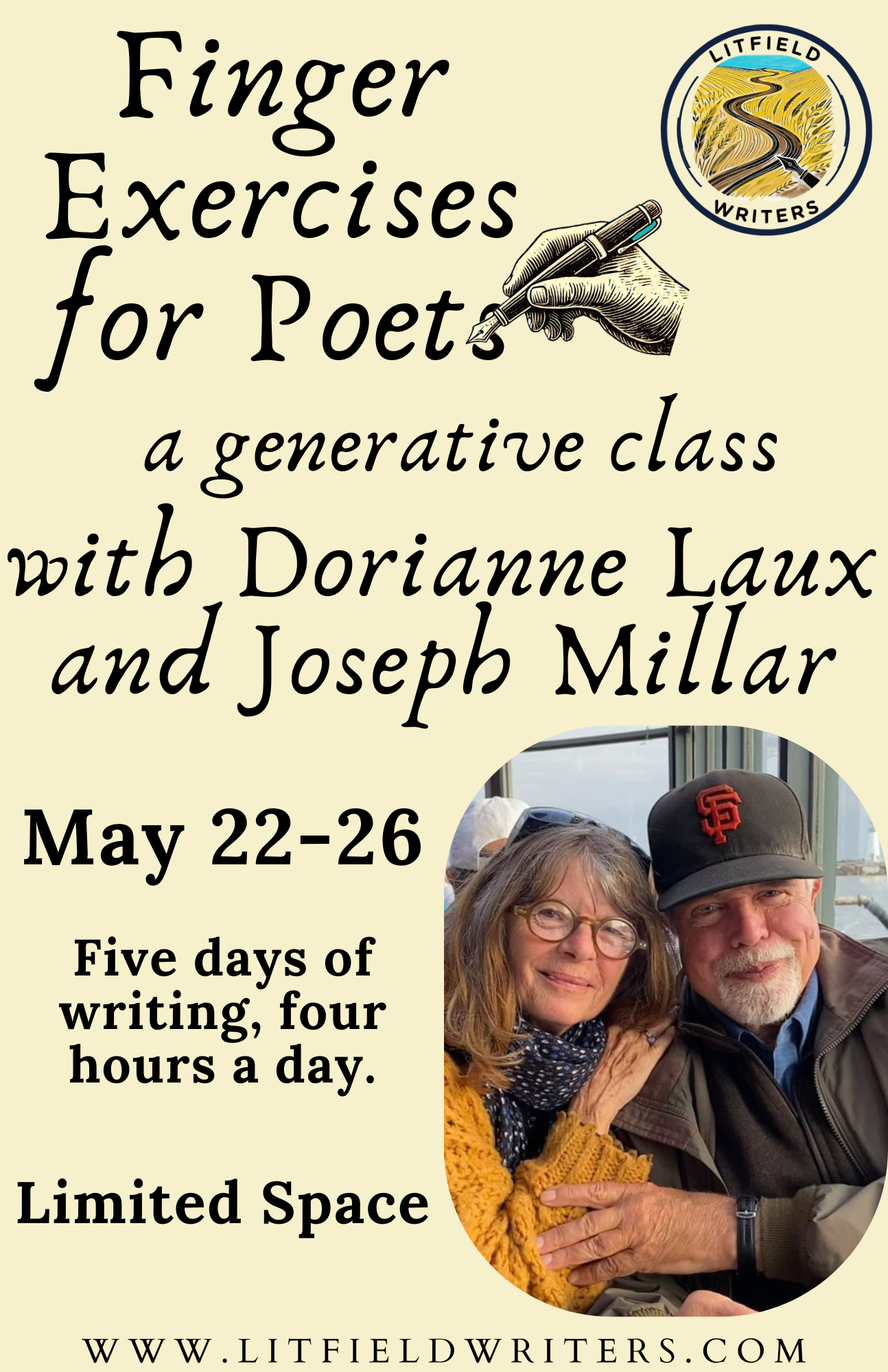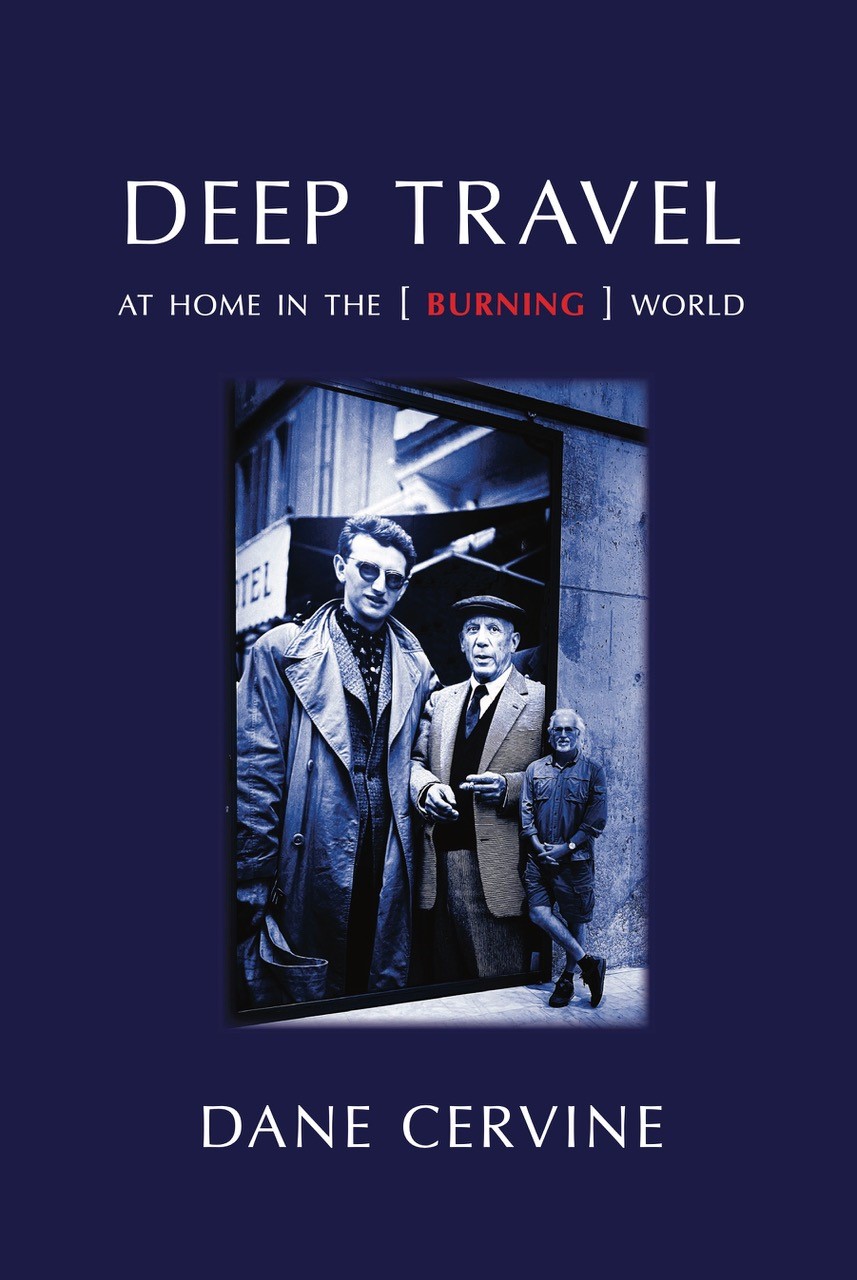
Mother Fire
An Interview with Kim Shuck, 7th Poet Laureate of San Francisco
by Lee Rossi
Kim Shuck, writer, weaver, and beadwork artist, was San Francisco's seventh poet laureate from 2017-2021. A Native American, a member of the Cherokee Nation of Oklahoma, and a native San Franciscan, she is the author of seven books of poetry, most recently Deer Trails (City Lights Books) and Exile Heart (That Painted Horse Press), as well as a work of prose, Rabbit Stories. In 2019, she published Murdered Missing, a book of poems about violence against indigenous women. Her work appears in When the Light of the World Was Subdued, Our Songs Came Through, the newly released Norton anthology of Native American poetry edited by Joy Harjo. As poet laureate, she gave frequent readings and free classes at all the San Francisco libraries until the pandemic curtailed her activities. After the pandemic began, she curated the Poem of the Day on the San Francisco Public Library website. She is a winner of the Northern California Book Reviewers Groundbreaker Award. A longtime member of California Poets in the Schools, she is also active in the movement to end violence against women. Upcoming publications include Noodle Rant Tangent (a volume she calls "cranky essays"), and What Breeze, art and poems from the pandemic lockdown, a collaboration with farmer, artist, and historian Lisaruth Elliott.
This interview was conducted via email in January 2021, near the end of her tenure as poet laureate.
Poetry Flash: You've spent the past three years as Poet Laureate of San Francisco trying to touch people who are not ordinarily touched by poetry. Joyce Jenkins of Poetry Flash alerted me to "Fire Thieves" and "Seeds," programs you started as Poet Laureate. Can you talk about your inspiration and your goals for these programs? How do you assess the results?
Kim Shuck: I may have given up on people who aren't interested in poetry and started focusing on people who make poems. "Seeds" became "Fire Thieves," because Paul Corman-Roberts names things better than I do, so that's one project. I'd noticed that poetry microclimates were having fewer connections than I thought sensible and healthy. So the goal was really to connect poetic communities. I think it worked pretty well, but results will likely keep trickling in.
PF: In an interview you did for the Mechanics' Institute you mentioned a couple of art teachers, Ruth Asawa and Benny Bufano, who were important in your development as a visual artist. Are there comparable figures in your writing life?
Shuck: Benny was an inspiration but not an actual teacher. I was poetically mentored by Carol Lee Sanchez, and had at least met most of the SF poets you have heard of and many you haven't.
PF: A friend who works with the Beat Museum mentioned that you've read frequently at the Beat Museum Poetry Festival. He asks, "I wonder if Kim has thoughts about a relationship between 'Beat' poetry and Native American poetry/culture/legacy?"
Shuck: Ohhhhh. I've read at the Beat Museum in a number of ways. Actually and alas, I think that the Beats were pretty unaware of some of the meat of Native lyric traditions, at the very least the Cherokee ones. Indigenous kids like everyone else windup reading Beat poets, and for the most part our material remains obscure to them. I mean, I don't see any of the Beats translating idigawesdi.

PF: One of the things I admire about your writing is the range of your interests and your ability to engage a variety of topics, some of them traditional, some of them extremely topical. In fact, very often your poems embody the tension between the past and the present, between "NDN" and European. Maybe we could talk about a few of the poems in Deer Trails, your new book from City Lights Press.
Let's start with the traditional. Your poems display a deep appreciation for the natural world as well as grief and anger at the impact of technological civilization. I'm thinking, for instance, about "Feathers and Pavement," a stunning poem about the recent wildfires, which ends on a note of defiance. The speaker of the poem, a hawk or a raven but also the poet, asks the reader, "did you know us before the / Disaster before the / Feathers and psychopathy we are not poems of the / Dissatisfied we take our / Songs to the edges and let them play in the / Mother Fire." What is the "Mother Fire"? And why is she important?
Shuck: Did I post my anger at the tech world on social media? [Laughing.] I have a love hate relationship with various tech. My Cherokee dad was a telecom engineer. I'm glad that you like that poem. We are not the dissatisfied: we are finding a way in this moment. Indigenous communities vary wildly in story, tradition, even history. We hear about mother earth a lot. In Cherokee traditions as I know them, and you will get mail about this because there are many differing perspectives, there is a tradition of the mother fire. As a metaphor it says some things about us Cherokees. Fire is dangerous; it's a cooperative and active relationship between humans and fire.
PF: "After Sunset" is another poem which contrasts nature and technological civilization, but which also seems to hint at a possible reconciliation. For instance, you say of the Golden Gate, that "the Bridge…has shaken more sturdy / Imaginations than mine." What is it about that bridge that shakes your imagination? Is reconciliation between the world of the Ohlone and Miwok and the world of European America still possible? Is that what the bridge symbolizes?
Shuck: Reading a poem is like reading tarot cards or tea leaves or the newspaper. There are so many approaches. I know that I can't speak to Miwuk or Ohlone viewpoints, but that bridge is in my personal story very strongly. It's one of the ways I know that I'm home.
PF: Childhood is another recurring theme in your poems: I was especially intrigued by "Thumbnail Wings," which dramatizes two distinct approaches to life. On the one hand we have the "we" of the poem, who are fascinated by "Rattlesnake grass" and "the / Perfect mud green / Salamanders with their / Tiny fingers" and on the other "the children of the / War…still singing in the / Streets their long hair / Unalloyed personal perspectives / Beginning to swell and bloom." You were here in San Francisco for the "Summer of Love." Was there a problem with hippies and the Counter Culture? Why, in your poem, do the long hairs (Baby Boomers / the Me Generation, we got called a lot of things) radiate "Unalloyed personal perspectives?"
Shuck: Baby boomers…I'm Gen X, but just, the very early edge of Gen X. I was raised in the triple point of Eureka Valley, Noe Valley, and the Mission by a Polish/American potter and a Cherokee Navy man from North Eastern Oklahoma and her parents who were both union members. Free speech vs. marrow deep sexism…cultural pack rattery vs. some of the most interesting cultural material since ever…unwillingness to release control over the revolution vs. mouth sounds implying that we should all have a say. Is there a problem? Yeah…no…problems on an individual basis. I dunno, I have long hair.
PF: Ancestral Wisdom is another frequent theme. "Lancet Eye," for instance, is a poem about Raven and Rabbit. Raven, that wise bird, is of course a common figure in indigenous stories. Raven, with his piercing eye, allies in your poem with Rabbit, the Cherokee trickster, transmitting wisdom through you to your sons: "there are no / Answers just stunning shapes and a / considered moment." A Buddhist couldn't have said it better. Is that statement an admission of defeat in the search for truth or an unalloyed declaration of ancestral wisdom?
Shuck: Raven and Rabbit are both tricksters but with different world views. I don't know that accepting the moment is a defeat, maybe?
PF: You also have a number of Love poems, but my favorite is "Drag Out the Old Gloves," which is a love poem to baseball (the Seals, the Giants, Kezar Stadium) but especially to your grandma, who used to play catch with you while listening to Giants' games on a transistor radio, "a half hour of toss and / Thud / Her lazy and / Perfect gesture." What else did you learn from your grandma besides that "lazy and perfect gesture?"
Shuck: How to tat, cookie baking, the value of gardening, how to make jam, a love of books, how to make golubki, Polish swear words, the joy of walking San Francisco hills, to have restless hands…too many things. That poem was also for my partner who is a serious baseball goober.
PF: Leaping to the topical, your poem "Cannibals" strikes me as a very angry dismissal of what critical theorists call "Cultural Appropriation."
Cannibals
Life feeding on life
Want to be allowed where they don't want to go
Want to rent furnished lives…
Want to know without understanding
Want to be where they are not wanted
Are you talking about ladies with turquoise jewelry, folks who display Navajo rugs on their walls like trophies, or non-indigenous writers who invoke Raven and Rabbit in their poems? Where do you draw the line?
Shuck: I was talking about the kind of gentrification that is painting our city like an above ground cemetery. The tone deaf BS that replaces a burned building with a new one that has burned boards bolted to the façade as a decoration. How many threads can you pull from a weaving before it comes apart? Do you leave at that point or help rebuild something? The line is a movable feast.
PF: You are (or have been) a member of the California Poets in the Schools: what level(s) did you teach (grade school, middle school, high school)? Which was your favorite group of students?
Shuck: I like second grade, but through CPITS [now CalPoets] and through other organizations I've taught everything from preschool to graduate school and also with adult learners who are new to art/writing.
PF: What do you think is your best exercise for getting students to generate interesting/meaningful expression?
Shuck: Exercise…you have to play with students to get something meaningful. That's all students. Each group is going to find play in different ways, each student really. You get them to talk about themselves and then make it into a poem. I arrive and am silly. I have silly hats. I try to make students laugh. Laughter, play, these are the best teachers.
PF: In the introduction to Murdered Missing, your book about violence against indigenous women, you mention that you wrote those poems, one a day for fifty days. Is that typical of your writing practice? And if not, how often do you usually write?
Shuck: I always write every day. I've done a few of what Dr. Jenny Davis calls my poem actions, which involve limiting the topic for a number of days.
PF: How long does it take you to write a poem? How many drafts do you go through?
Shuck: Shhh. I don't usually make drafts. Don't tell anyone. It's like sumi-e style painting in poetry. Don't pick the pen off of the paper until you are done. How long does it take…should I get philosophical about that? The last one took about fifty-five years. I actually don't know how long things take. I know that when we go on road trips I write lines as we pass things and then I read them later and the ideas find their way into poems. Sometimes years, sometimes a minute. Not all of the poems are good.
PF: Can you describe the process of putting together the poems in Deer Trails?

Shuck: Yeah…there were two manuscripts, Deer Trails and Exile Heart, and the poems were all made around the same time. I sat down with Thea Matthews, printed up all of the poems from both, and changed what poems went where. Thea was essential. She also kept one piece in that many people have loved and I hated by then. Exile Heart will be out in 2021 from That Painted Horse Press.
PF: You mention that your beadwork, weaving, and other visual arts engage the same sort of creativity as your poetry. Does that mean when one outlet dries up, you turn to another? Or to ask the question in a slightly different way, how do you know it's time for a poem and not a purse or a basket or a costume?
Shuck: Rather than costume, maybe regalia? No. At the moment I have two pieces of beading, half a poem, part of a prose manuscript, a pile of lonely basket splints, a beautiful geometry proof, and some paper art going on my desk. Rather than one medium vs. another I feel as if I solve problems in one by moving to another. I do it all at once all of the time. My process, the assembly and arrangement of small pieces, small actions, into a larger thing, that's how it's the same. Beads, words, colors, stitches, it's all art of process.
PF: Unlike a lot of contemporary poets, your poems tend to be short and stand alone—momentary slices of life. Personally, I like short and pithy. Epigrams are one of my favorite genres. Any reason you can think of for that predilection?
Shuck: I've been referred to as part of the North Eastern Oklahoma Terse school of poetry along with Carroll Arnett and others. I suspect there is something in Cherokee prayers, some of the poets I admire, and a short attention span that causes my work to be like that.
PF: Speaking of poets you admire, I imagine not all of them are members of the North Eastern Oklahoma Terse school; can you identify some of them for us and tell us why you admire them?
Shuck: Well for one there's Paul Corman-Roberts, author of many books of poetry including the impending Bone Moon Palace. Also Carol Lee Sanchez, who was a teacher, a painter, a poet, the woman who took the Pegasus Project out of SF State and reassembled it as California Poets in the Schools, founder of the Bay Area Poets Coalition, and my mentor, who called me her daughter on occasion. Also, San Francisco poet Thea Matthews; her book Unearth the Flowers is on Kirkus' list (www.kirkusreviews.com/book-reviews/thea-matthews/unearth-the-flowers). Then there's Dr. Jenny Davis, a linguist, professor, and poet from Oklahoma, whose first book will be coming out from University of Arizona Press.
As with much in my life, I am very lucky in my friends, but then I was the seventh poet laureate of San Francisco; I have seven books out and one of them was the seventh in a series…if you are into numbers I've landed pretty well.
PF: One of the noteworthy characteristics of your poetry is that you often conclude poems with a one-liner, which also functions as a moment of insight. In "Smuggling Cherokee," an earlier poem, you write:
The man asks me
"Do you speak Cherokee"
But it's all I ever speak
The end goal of several generations of a
Smuggling project.
We've slipped the barriers
Evaded border guards.
I smile,
"Always."
Those last two lines seem to me a wry and pointed putdown of Euro-colonial literalism. Do you start with the punch line, or does it arrive during the process of composition?
Shuck: It has been said that I write punch lines not poems. They come with the poem, generally in order.
PF: Another thing I noticed about your poems is their disinterest (or maybe the word is disdain) for punctuation, especially periods. Why?
Shuck: I don't have to tell you where to breathe. (Smiling).
PF: We learn in school that the last word is the most important word in a line of poetry, and yet you often end your lines with words like "the" and "and" and even "like." Can you explain your ideas about line breaks?
Shuck: Okay, that. I didn't go to poetry school. I decided one day that I didn't like starting a line with 'the' or 'a.' There were a few good years where I'd rearrange my thoughts to always start with a noun or a verb, so it's not about the last word but the first, for me.
PF: A review of Natalie Diaz's Postcolonial Love Poem notes that she "rejects stereotypes that cast Indigenous people as monocultural." You do too. As you see it, what are the main cultural streams that flow into and out of your poetry?
Shuck: San Francisco, Urban Cherokee, mistranslated Academia, small 'p' poetics, and joy.
PF: Identity is a word that gets used a lot these days, so is community. You're a member of the Cherokee diaspora, but who is your community—other Cherokee, other Bay Area indigenous people, other artists and poets, your readers and fans? Who do you look to for support for your creative life?
Shuck: Yes. Also friends, family, Goral Polish people, and children. Maybe less readers and fans unless I know them personally.
PF: Recently I was reading An Indigenous People's History of the United States by Roxanne Dunbar-Ortiz and was struck by the author's assertion that there's a real difference between indigenous and Euro-colonial cultures: indigenous stories and myths have a collective authorship whereas in the West, authors are expected to be original and their stories to be unique, no doubt a reflection of the individualistic bias of that culture. Do you agree with Dunbar-Ortiz? And if so, how does that difference impact your work?
Shuck: Yes. I don't know how it impacts my work; it does impact my sense of community.
PF: You're coming to the end of your term as Poet Laureate. You've done an incredible service to the City and the poetry community, but is there anything else you'd have liked to have done, or anything you hope the next Laureate will do?
Shuck: No. I have some unfinished work, with good reason, pandemic and all, but I did what I wanted to. I want the new Laureate to do things I haven't thought of, and I can't wait to watch.
PF: What haven't I asked that you want the readers of Poetry Flash to know?
Shuck: I asked a friend who called while I was doing this interview, and Paul Corman-Roberts says, "You are a poet from the source and not from the system, which is why you don't formally edit. And you know how to kill someone with your bare hands."
PF: Thanks so much, Kim, for this opportunity to pick your brain. Much appreciated ![]()
Lee Rossi's recent poetry book is Darwin's Garden: Studies from Life. His collections include Wheelchair Samurai and Ghost Diary. A staff reviewer and interviewer for the online magazine Pedestal, he is a Poetry Flash contributing editor and a member of the Northern California Book Reviewers; his poetry, reviews, and interviews have appeared in The Beloit Poetry Journal, Poetry East, Chelsea, and elsewhere. He lives in San Carlos, California.
Photo by Douglas A. Salin
— posted July 2022
































































































